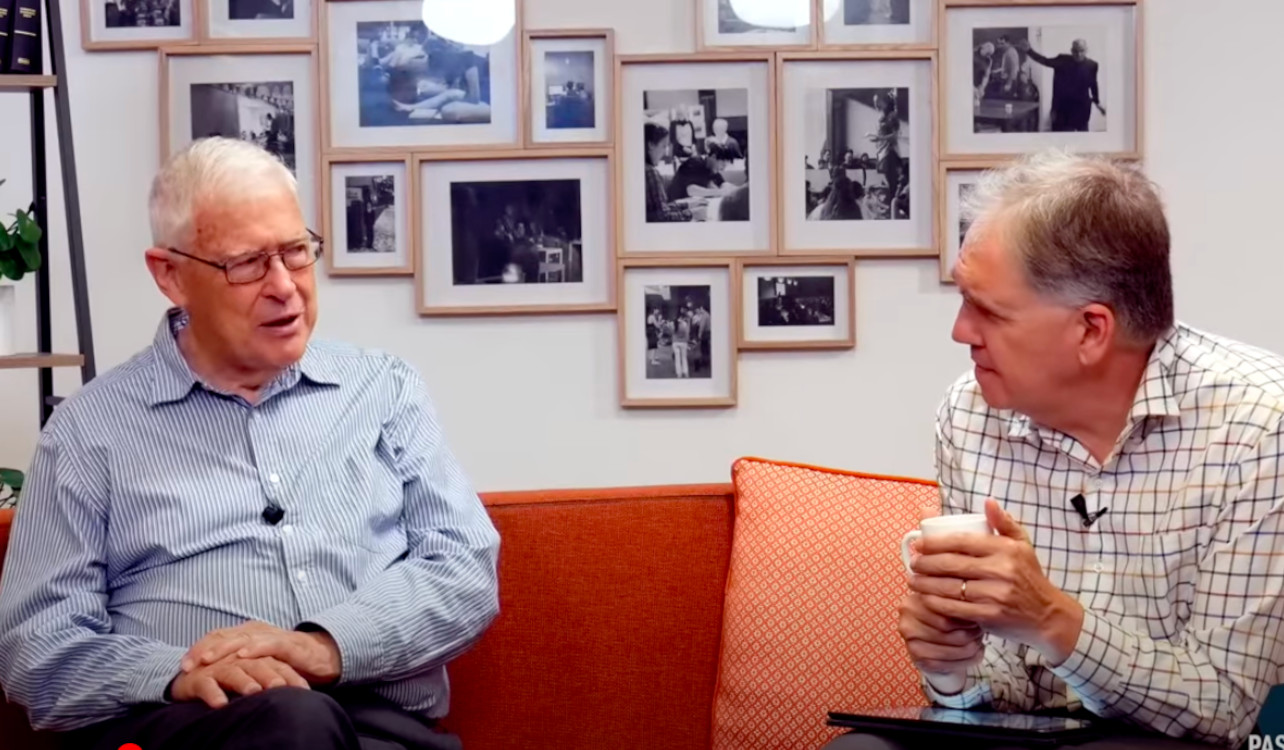The Church of England has made its decision about same-sex blessings, says Peter Jensen, former archbishop of Sydney and a key player in the setting up of Gafcon.
“I have to say, I think the horse is bolted,” Jensen tells Sydney minister Dominic Steele on the pastor’s heart podcast. He points to the Church of England announcements as evidence. When Steele asks if the Church of England has “crossed the Rubicon” (a metaphor for decisive, irrevocable action based on Julius Caesar rebelling against Rome), Jensen agrees.
The announcements Jensen refers to say, “The Church of England’s General Synod has welcomed proposals which would enable same-sex couples to come to church after a civil marriage or civil partnership to give thanks, dedicate their relationship to God and receive God’s blessing.”
The Bishop of London, Sarah Mullally, who has led the change process, made it clear at a press conference that the blessings apply to sexually active relationships.
Conservative evangelicals in the Church of England, such as Lee Gatiss of the church Society have adopted a “stay and fight” approach. “No doctrines have formally been altered, and the amended motion committed the bishops to ensuring that all their work will be within the existing doctrine of the church,” the church society report on the synod points out.”
Sydney’s Anglicans would generally work closely with the Church Society, and conservative evangelical churches such as St Helens Bishopsgate and All Souls Langham place at this stage have said they will not pay money to the “common fund” of their diocese (region).
But Jensen says a decisive change has occurred, despite what some English conservative evangelicals that Sydney usually agrees with are saying, “There a couple of theologians in England, who I greatly respect, have said, ‘please remember if you look at the actual wording of the motion that was passed in the general synod, and the amendment.’ said, you, whatever you do, you’ve gotta stick to the doctrine of the Church of England. They’re saying, look, it’s not as bad as it looks … In fact, in a sense, it’s been a victory. However, I have to say; I think the horse is bolted.”
Prayers proposed by the bishops would mean clergy can bless couples, heterosexual as well as LGBTIQA+, who are having sex outside of marriage.
“I have a number of friends, who have not had that opportunity to be married, and all their lives, they have lived chastely,” Jensen said. “They have not thought that sex outside marriage was possible for Christians. And it’s as though these people … are now being told,’ oh, by the way, that was wrong. You can do these things after all.’ [So it’s just] mind-numbing that people who have been deeply Christian and have sacrificed a great deal for the Lord Jesus and will be blessed for it, of course, should be treated in such a way.”
Jense also spoke of the effect of the English decision on the Anglican Communion. “One of the things that has come out, of course, is how this, in a sense – I’m going to use a strong word – it betrays the communion much more than similar things that happened in the United States. This is the church from which so many of us received the gospel. So there’s, there’s a sense of betrayal [being felt] in the worldwide communion and of pain and of possible bad consequences, which the Archbishop of Canterbury himself mentioned in the debate. … It exposes us to the anger and the contempt of people around us in a new way.”

